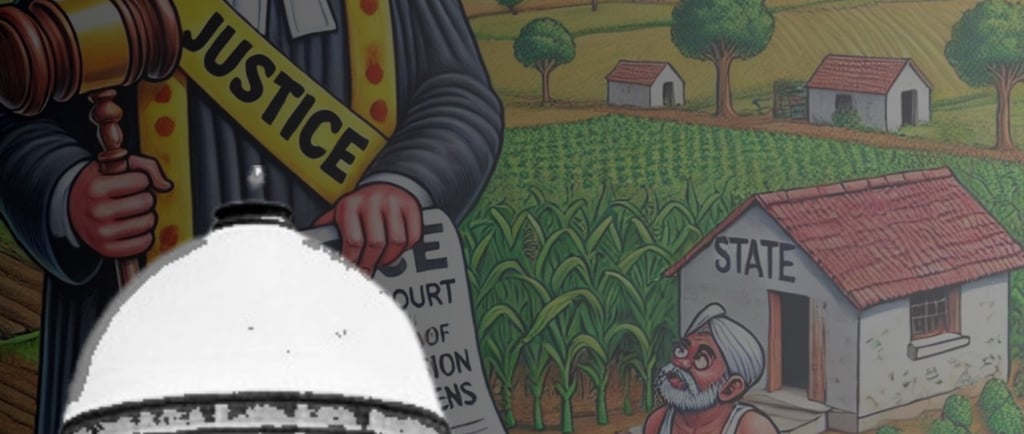Supreme Court Denounces State's Claim of Adverse Possession Against Citizens
The Supreme Court of India, in a landmark judgment dated November 19, 2024, dismissed an appeal by the State of Haryana, challenging the High Court's decision that favored the plaintiffs, Amin Lal (now deceased and represented by his legal heirs) and Ashok Kumar, in a dispute over 18 biswas of land in Bahadurgarh, Haryana. The bench, led by Justice Vikram Nath, reinforced that the State cannot assert adverse possession against its citizens—a doctrine the Court described as contrary to the principles of a welfare state.
11/28/20242 min read


The case originated in 1981 when the plaintiffs filed a suit seeking possession of their land, which was allegedly encroached upon by the Public Works Department (PWD). Despite repeated requests and legal notices, the State did not vacate the land. The plaintiffs cited revenue records to establish their ownership, while the State countered with a claim of adverse possession, alleging uninterrupted use since 1879-80.
Legal Journey:
Trial Court: The court ruled in favor of the plaintiffs, rejecting the State's adverse possession claim and affirming the plaintiffs' ownership based on revenue records.
First Appellate Court: Overturning the Trial Court's decision, the First Appellate Court dismissed the suit, terming the plaintiffs as “land grabbers” who manipulated records.
High Court: In 2019, the High Court restored the Trial Court's decree, invalidating the State's claim of adverse possession. It held that taking such a plea implied acknowledgment of the plaintiffs' title.
Supreme Court Ruling:
In the appeal before the Supreme Court, the State argued that the High Court erred in overturning the First Appellate Court’s judgment and claimed long-standing possession supported their ownership presumption. However, the Court dismissed these arguments on several grounds:
State's Inability to Claim Adverse Possession: The Court held that a welfare state cannot appropriate private property through adverse possession, as doing so infringes on constitutional and human rights.
Plaintiffs' Title Proven: The plaintiffs substantiated their ownership through jamabandi entries, sale deeds, and mutation records. The Court emphasized that revenue records, though not conclusive proof of ownership, carry a presumption of correctness unless disproven.
Permissive Possession: The State's possession, as described in the Misal Hakiyat of 1879-80, was found to be permissive rather than hostile or adverse.
Misplaced Burden of Proof: The Court faulted the First Appellate Court for incorrectly shifting the burden of proving ownership onto the plaintiffs when the State had implicitly admitted their title.
Doctrine of Adverse Possession: Acts such as storing materials or constructing temporary structures were deemed insufficient to establish the hostile intent required for adverse possession.
Justice Vikram Nath, citing precedents like Vidya Devi v. State of H.P. and Tukaram Kana Joshi v. MIDC, reiterated that the State's duty is to uphold citizens' property rights rather than violate them.
Conclusion:
The Supreme Court's ruling underscores the sanctity of property rights in India and the constitutional obligation of the State to act as a custodian, not an adversary, of citizens' interests. By dismissing the appeal, the Court reaffirmed that adverse possession claims against private individuals erode public trust and constitutional values.
This judgment sets a critical precedent, limiting the misuse of adverse possession doctrine and ensuring stronger protection for private property rights
